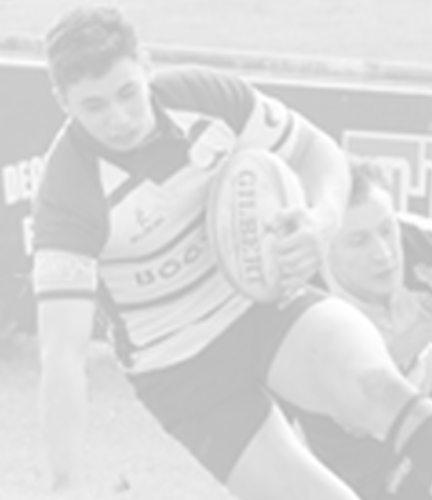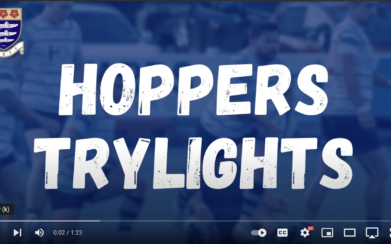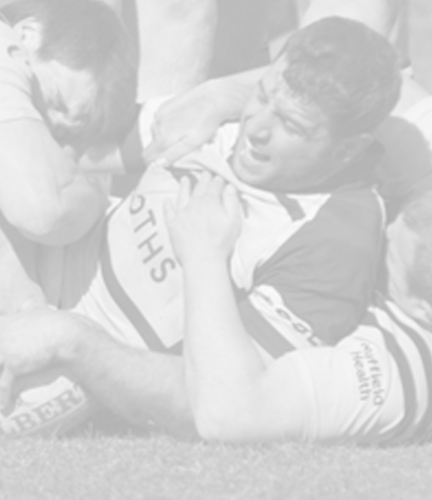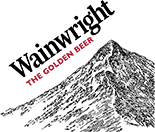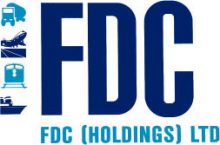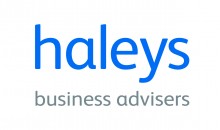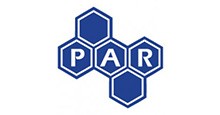Hoppers step into the 21st Century and Create an Analytical Department

Gareth Dyer welcomes Matthew Coleridge to the team
Anybody who has attended a rugby match at National League level or higher cant fail to have noticed some interesting looking individuals manning video and laptop equipment of some sort or another during the 80 minutes. In modern times technology and media is everywhere and readily available at the touch of our fingertips in multiple formats and on all kinds of portable devices.
This is the age of the iPad, smartphone and Kindle and therefore it is not surprising that the sporting world is taking advantage of this technology and a new generation of specialists working among the coaching staff have emerged as a result. A breed of coach who directs training from behind a laptop rather than yelling orders and blowing a whistle on the muddy training pitch, a breed that provides facts, figures, graphs and video clips to influence tactical decisions as well as team and player development.
Rugby is one of the main sports that has embraced this phenomenon and it has become so increasingly common in the modern game, that teams of all levels of ability and professionalism are employing the specialists skills of these specialists to get every last ounce of performance out of their XV.
Appointment
Preston Grasshoppers is an ambitious Rugby Club which always invests in man power and technology to take the side to the next level. It is for this reason that Hoppers Director of Rugby Gareth Dyer has created an analytical faction to the coaching unit and appointed a 1st XV Match Analyst for the 2012-13 season in the form of Matthew Coleridge.
Matt is delighted to take up the appointment, “I had some dialogue with a couple of other teams at the end of last season, but once I met with Gareth Dyer and had a chat with him and he outlined his vision for the club and the steps he was taking to get the club promoted I knew exactly where I wanted to be and that this is the place to be. I went to Uni here, I have been to games here and the players that Hoppers attract, the quality of the coaches and the friendly family orientated atmosphere of the club were just factors that made my decision as to where to apply my trade very easy indeed.”

Matt’s camera set up at Sheffield Tigers
Background
Matthew played schoolboy rugby at King Edward VII School, Lytham (now known as AKS) in his teens and has been an avid rugby fan since following Northampton Saints for a number of years now. His local routes extend to UCLAN where he achieved his degree in Criminology, and will be manning the cameras and laptops this season for his former hometown club, providing an analytical service to coaches Karl Fitzpatrick, Mike Lough and Alan Holmes, producing statistical data and video packages to help enhance improvement and contribute to the tactical decision making process.
Matthew has combined his role at Hoppers with his work with Lancashire Under-18’s who saw the benefit of his services this summer in their annual tour of Ulster. After a poor performance in the first match against the School’s Ulster side, an effective video session the following day saw the lads redeem themselves with a convincing win over the Ulster Clubs system XV.
In a pre-season interview Coleridge does not, for one moment, assume the credit for the turn around but does suggest it was a factor in the reversal of the team’s fortunes: “We had a really good video session after the first game because we got thumped really, one or two egos needed reigning in and lessons had to be learn’t, we didn’t execute or game plan and never got the basics the right, I’d say we lost it as much as they [Ulster Schools] won it and that needed addressing. We had a really positive video session the next day, where the lads sat up, paid attention, bought into the process, good discussion was generated and lessons were learnt, after which we had a much improved performance in the 2nd game.
In the post tour evaluation I produced for the players which was delivered at the first training session of the season the contrast in the two performances was clear. It’s a great service that we are able to provide to the team’s development but ultimately it’s the coaches who teach them the tactics and the skills to win games and the credit for those wins should rest with them, I am simply able to play devils advocate.”
Matthew earns a living as an Intelligence Analyst in Greater Manchester Police working for the South Manchester division where he lives. He has 6 years experience with the organization but has made the jump to sports analysis bringing his skills learnt in the public sector with him.
By day Matthew’s role will involve examining forensic opportunities in identifying criminal offenders, identifying and examining patterns or series of crimes to inform decision making regarding how to deploy police resources geographically and temporally as well as interrogating intelligence to aid the force prevent crimes from happening.
With his new role at Hoppers he is charged with calculating territory percentages, assessing the amount of opposition ’22 entries earned, comparing the count of knock and penalty conceded in relation to other performances and generally identifying weaknesses and strength in the Hoppers side.
Analysing crime to rugby matches seems a big leap, but not that big a leap according to Coleridge, “It [sports analysis] is a bit different because of the content being studied, but really analysis is more of a mind-set than a skill, and I have taken the training I received in the police and applied it to sport. By saying analysis is a mind-set I mean it involves thinking ‘outside the box’, coming up with factors that can be compared one to another to give a information about the subject, whether it be territory gained/lost in a rugby match or the number of burglaries in an area of Manchester.
In the sports analysis I am far more responsible for the data collection phase of the process but this is a liberating experience as the stabilizers are taken off, you might say, and allows me to look at more factors and a greater range of information.”

Why all the fuss with technology? Matt explains below.
So, what is all the fuss about with this ideology of using analysis in sport? Surely it is not worth the cost of all the equipment and man power that the club puts in and instead the team just need to learn from their mistakes on the field rather than sitting in a conference or classroom before training?
Coleridge takes a philosophical stance, “It [analysis] is becoming more and more important and the ideology is that if you can get 1% more performance out of the team as a result by putting resources and time into analysis then it has all been worth it. In the modern day video technology is there to review games over and over. Having trained people there to grind and dig through it to give the coaches a more informed post match reaction going into the next week and/or feeding back to the players is vitally important. What is also becoming more apparent is the fact that if a team neglects this angle of the coaching process they know other teams will involve it in theirs in an attempt to extract that [at least] 1% I mentioned from their team, so there is a great value to be gained from analysis in sport.”
Relationship with coaches
When asked what his relationship with the coaches at Hoppers is like, Coleridge was positive showing that the addition of an analytical wing to the backroom staff has been a success in the short term, broadening the level of expertise on offer to the players and hopefully the future is bright.
“The coaches have been great, they are really thankful for everything you do. We started a bit slowly as they tried not to overload me with responsibility and we collectively eased into the process, but they are all good real world guys and so I think we have all learnt how to benefit from each other’s expertise.”
He continues, “I always say that the most important part of analysis is the tasking process which is a notion they have really understood the importance of and adopted quickly so we have post match discussions and phone and email conversations detailing what we should look at to work on in the video session, training or what to disseminate to the players. But most of all the guys are constantly re-iterating their gratitude and appreciation for what work I do which is not necessary but shows what a great group of blokes we have here.”
Indeed the positive steps taken by installing an analytical element to the coaching is echoed by the coaches themselves. Head coach Mike Lough told us “Matt has been an extremely valuable addition to our coaching staff. His specialist expertise and attention to detail has made a very positive impact on the team in the short time he has been involved. We are very lucky to have him.”
Director of Rugby Gareth Dyer added “We are always looking at how we can help our coaches and players to develop and the excellent work Matt is able to provide gives clear support to both. We have a very committed back room team from Ian McFarlane as Team Manager to our physio staff and strength & conditioning team. They provide a real professional edge to what we do and Matt has fitted straight into that ethos.






